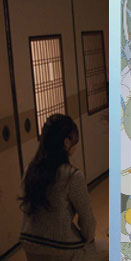コース
 フルカンファレンス
フルカンファレンス
 1日券
1日券
30年以上に渡り、シーグラフのコースプログラムは、コンピュータグラフィックス及びインタラクティブ技術の最前線の成果をわかりやすく解説してきました。このプログラムでは、国際的な専門家による、初級から上級向けのチュートリアルを開講します。アニメーション制作、ヒューマンインタラクション、ゲーミング、レンダリング技術、計算幾何学、モバイルデバイス等、様々な分野のチュートリアルを受講できますシーグラフアジア2009では、何百人もの業界人、開発者、研究者、アーチスト、学生が“コース”プログラムに参加し、各自の分野の知識を広め、また深め、最新の研究分野の知識を習得できます。
シーグラフアジア2009 コース一覧
OpenCL: Parallel Programming for Computing and Graphics
Wednesday, 16 December | 5:30 AM - 2:30 PM | Room 502
The rapidly changing capabilities of modern graphics processing units (GPUs) mean that developers need to understand how to combine parallel-programming techniques with the traditional interactive rendering pipeline exposed by OpenGL and Direct3D. This course demonstrates how to combine traditional rendering APIs with advanced parallel computation using OpenCL (Open Computing Language), a cross-platform API for programming parallel systems such as GPUs. The course is presented by industry experts in general-purpose programming using GPUs. The first section reviews the basics of the OpenCL API including a "Hello World" application written in OpenCL Attendees with laptops will be able to try the examples on their own during the course. The second section covers more advanced cases, including how to write applications that interact with standard graphics APIs. The final section includes performance-optimization "tips and tricks" for writing OpenCL applications.
Level
Beginner
Presentation Language
Presented in English
Prerequisites
Knowledge of general-purpose programming languages. A cursory knowledge of graphics-processor operation is beneficial but not required.
Instructor(s)
Justin Hensley Advanced Micro Devices, Inc. Jason Yang Advanced Micro Devices, Inc. Mark Harris NVIDIA Corporation
Instructor Bio(s)
Justin Hensley Justin Hensley is member of the technical staff in AMD's Office of the CTO focusing on parallel programming using graphics processors. He has been involved with several projects, including face recognition, depth extraction, game physics, and advanced filtering techniques. He has been involved with driving the compute requirements, and the associated software stacks, of next-generation graphics processors. He received his PhD in computer science from the University of North Carolina at Chapel Hill in 2007. He holds an MS in electrical engineering and a BS with a double major in electrical engineering and computer science engineering from the University of California at Davis.
Jason Yang Jason Yang is a member of the technical staff in AMD's Office of the CTO currently focused on GPGPU research. He has been involved in several major projects, including H.264 and VC-1 shader decoding and custom anti-aliasing with edge detection. Recently, he worked on AMD's Stream Computing SDK. He received his PhD in computer science and his BS in electrical engineering and computer science from the Massachusetts Institute of Technology in 2005 and 1999, respectively. Mark Harris Mark Harris is a Senior Developer Technology Engineer at NVIDIA, where he works with developers around the world on software for computer graphics and high-performance computing. His research interests include parallel algorithms, general-purpose computation on GPUs, physically based simulation, real-time rendering, and gastronomy. He earned his PhD in computer science from the University of North Carolina at Chapel Hill in 2003 and his BS.from the University of Notre Dame in 1998. He founded and maintains GPGPU.org, a web site dedicated to general-purpose computation on GPUs.


